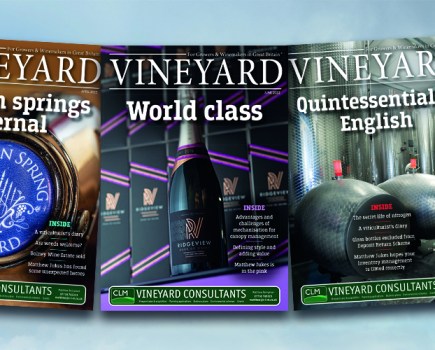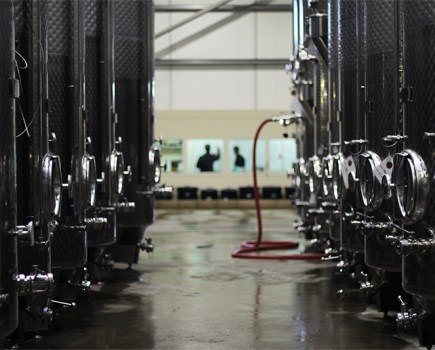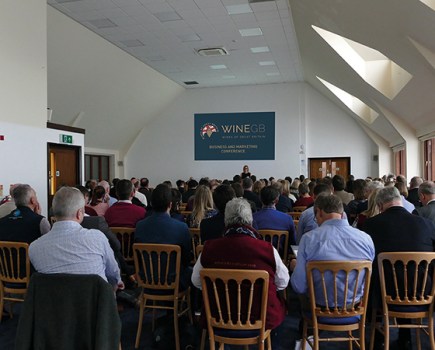Sam is embarking on a new enterprise, S J Barnes Limited, offering specialist contracting services to vineyards in the South East of England.
Why would the owners of a successful vineyard in the south of France decide to buy land in Kent to expand their acreage? It’s 700 miles further north and is unlikely to get anywhere near the 300 days a year of grape-ripening sunshine enjoyed in le Midi.
But that is exactly what Charles and Ruth Simpson – the British owners of Domaine Sainte Rose, near Servian in the Languedoc – have done. Having spent 15 years developing their French estate into an award-winning producer of high-quality wines, the next phase of their business has neatly dovetailed with the burgeoning English sparkling wine industry.
Vineyards have existed in the comparatively mild climates of Kent, Sussex and Hampshire for many years, but it is only recently that English sparkling wine has been accepted as a serious contender on the world stage.
‘English fizz’ was given a further seal of approval at the end of 2015 when Champagne Taittinger bought 171 Kent acres less than 20 miles from the Simpsons’ estate in Barham, on the other side of Canterbury.
Charles and Ruth bought their Kent estate in 2012, three years before Taittinger, but both transactions were arranged through Nigel Porter, in Strutt & Parker’s Canterbury office. “We’ve seen an increased demand for land in this area, both from French champagne houses and others interested in viticulture,” he said. “There’s a massive difference in land values, which makes it attractive to French and other international growers; you could easily pay a million euros a hectare [£350,000 an acre] for planted land in the Champagne region, but here, an established vineyard is probably worth around £70,000 a hectare.”
The Simpsons bought two plots, totalling 87 acres. “We invested in this land because not only was it chalk soil, but both plots were less than 100 metres above sea level, had south-facing slopes, and shelter from winds to protect young shoots,” said Charles. “When you’re growing in marginal weather conditions as in the UK, you need to make sure everything else is in your favour – we’re very pleased with both sites.”
The couple wanted to secure the land but weren’t 37 ready to plant, so Strutt & Parker managed it for them, farming it for two years through a local arable farmer. “We went from acting for the seller to acting for the purchaser, which worked well for everyone,” said Nigel Porter.
As a precursor to the English venture, Domaine Sainte Rose’s first-ever sparkling wine was produced in the Languedoc in 2012. The first vintage was launched in 2013, and by 2014 the Simpsons were based in the UK. That same year, they bought two large barns close to their land for their new winery, which was installed in 2016 with the help of a Rural Development Programme for England Growth Programme grant.
The Simpsons planted their first block of vines on English soil in 2014, on the smaller of the two plots, using the same three varieties of grape – Chardonnay, Pinot noir and Pinot meunier – used to make all Champagne. The second, larger plot was partially planted in 2016, and completed in 2017. A small amount of still Chardonnay was bottled in 2017, with the first English sparkling wine released in 2018.
So how will the Simpsons’ English sparkling wine compare with the Domaine Sainte Rose version? “Our aim is to create an even finer méthode traditionnelle than we can in the Languedoc,” said Ruth.
“The challenge in warmer climates is to keep the purity, lightness and finesse you want in a sparkling wine. With the UK’s cool climate, our acidities will be higher, something that is essential for ageing this type of product. We believe that our English production will compete with the finest sparkling wines in the world.”
Strutt & Parker can help with any aspect of buying, setting up, growing and selling vineyards and viticultural land. To find out more, visit www.struttandparker.com/viticulture



